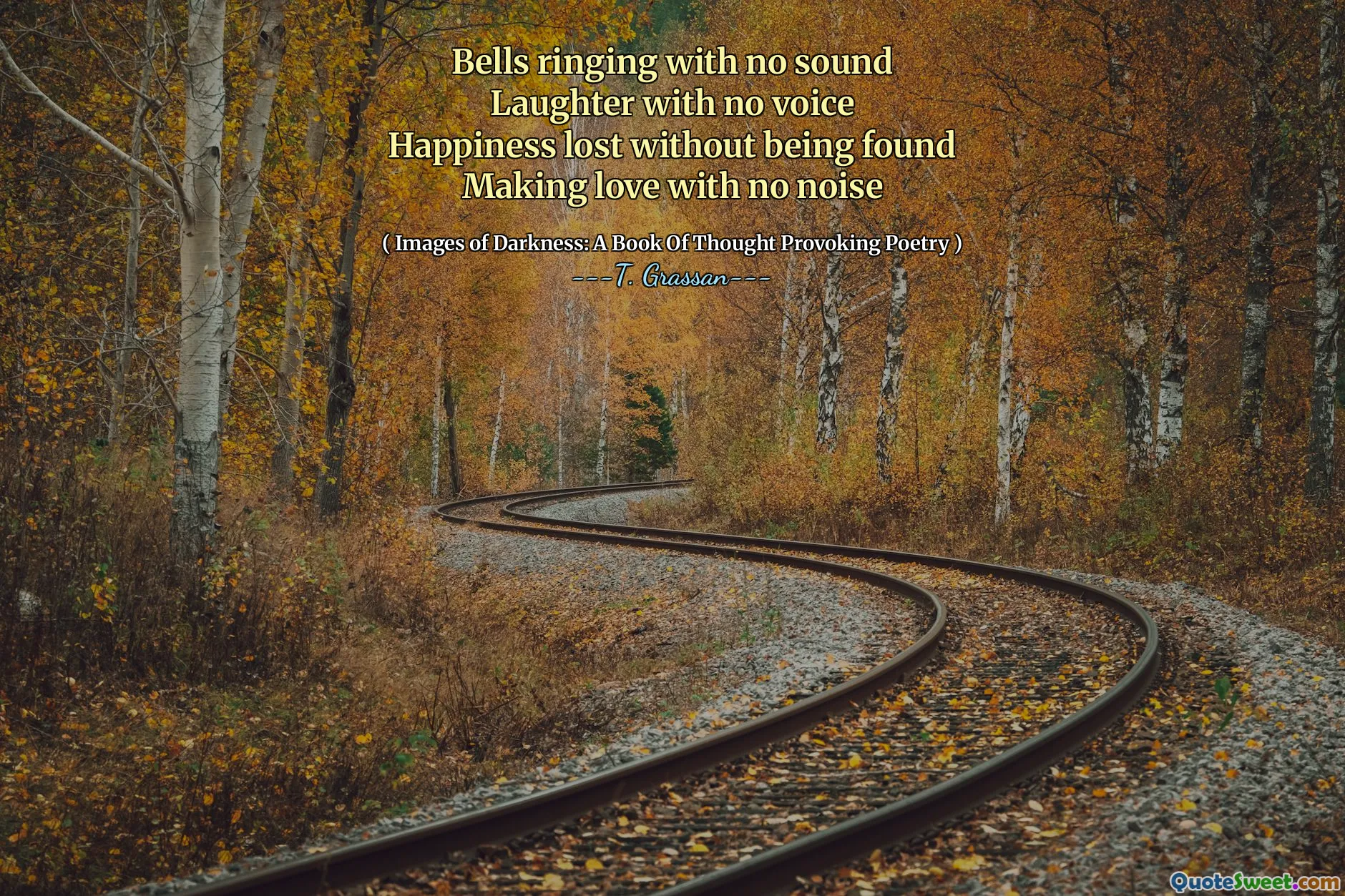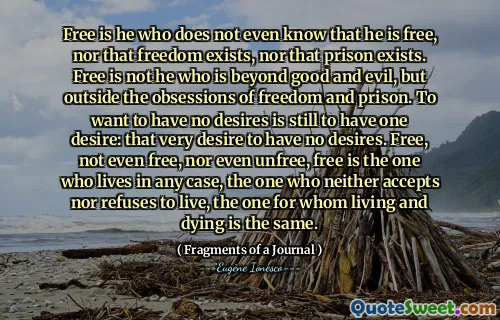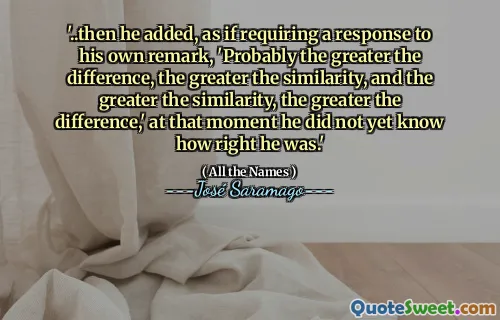
Bells ringing with no sound Laughter with no voice Happiness lost without being found Making love with no noise
This quote evokes a profound sense of paradox and absence, capturing experiences that inherently should be vibrant and expressive, yet here are depicted as voids or silences. Each phrase juxtaposes an expected sensory or emotional engagement with its stark absence: "bells ringing with no sound" presents a visual or symbolic event typically associated with a loud, clear, and festive noise, yet alarmingly silent; "laughter with no voice" suggests joy and mirth but muted and intangible; "happiness lost without being found" speaks to an elusive joy that remains hidden or unreciprocated; finally, "making love with no noise" implies intimacy devoid of its usual passionate expression or connection.
These lines invite introspection on the nature of presence, absence, and the human experience of feelings and moments that, despite their importance, sometimes fail to manifest fully or be recognized. The paradoxes highlight emotions and states of being that may exist internally but do not resonate outwardly or fail to be grasped by others. It paints a somber, almost haunting picture of unfulfilled connection, muffled emotions, and intangible joy.
Reflectively, this poem conveys the poignant reality of moments when life’s richness feels muted or inaccessible — a silence that can be suffocating and isolating. It encourages us to cherish the authentic sounds, voices, and expressions that breathe life into our relationships and our own sense of happiness. Furthermore, it speaks to the human longing for meaningful connection and the pain when such connection remains unheard, unseen, or unfelt. This subtle yet powerful imagery hints at emotional numbness or loss, compelling us to recognize and address the silenced parts within ourselves and our world.
Overall, this compelling articulation from "Images of Darkness" by ---T. Grassan--- paints a vivid tapestry of emotional voids, provoking thought on presence and absence in human experience.


